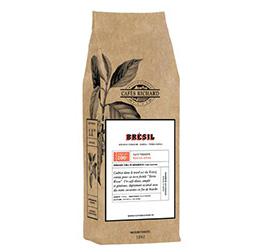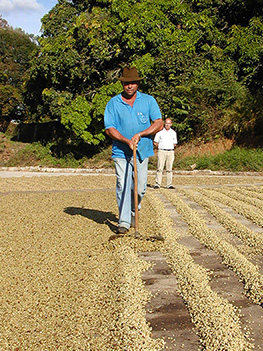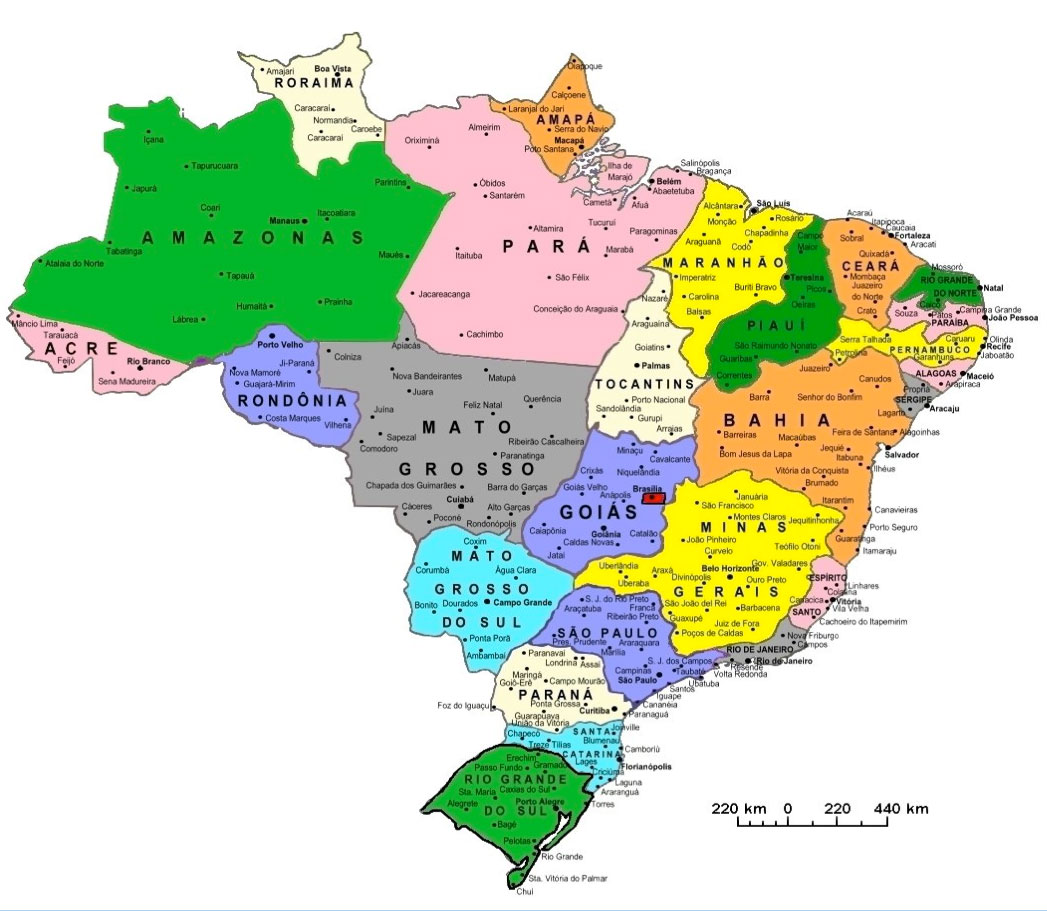Brasil
BRAZIL : THE WORLD NO.1 PRODUCER
Coffees from Brazil possess roundness and honeyed notes that make them an absolute “must” for the balance of our best blends. Their mellowness and their low acidity allow the other coffees to express themselves, for blends that are truly harmonious.

We also offer a “Grand Cru” coffee: BRAZIL BAHIA - Terra Roxa. An exceptional area that produces a lightly acidulous coffee that leaves lingering notes of cocoa and caramel on the palate.
Located in the north of the state of Minas Gerais, Bahia is the biggest region in terms of cocoa production and exportation. Coffee represents a relatively small percentage of their production, but it is highly reputed for its quality. Grown at an altitude of between 1,000 and 1,700 metres, the beans here are washed and predominantly dried in the sun, and protected from the morning dew by large canvas sheets.
Particular attention is paid to the coffees originating in this region, as they are considered to be the best in Brazil, thanks to their rich, mellow and finely fruited flavours.

Brazil is the world’s number 1 coffee producer with around 57.6 million 60-kilo sacks, and alone contributes approximately 25% of the world Arabica production. It was the French who imported the first coffee beans at the end of the 18th century… and today there are some 4 million coffee bushes planted in 17 out of the country’s 26 states…
Minas Gerais
Often known as Brazil’s mountain state, it is ideally situated in a hilly region offering the very best conditions in terms of sunshine and rainfall, with altitudes that vary from 1,100 to 1,400 metres. It is the largest zone of Arabica production, and offers a large number of varieties: Catuai, Catucai, Mundo Novo, Yellow Bourbon… Varginha, the coffee-producing region’s central city, is the heart of the logistic structures necessary for receiving, preparing and sending the coffee out to destinations around the world, via the port of Santos.
According to the latest estimations, 71% of the farms (Fazendas) are less than 10 hectares, 25% are less than 50 hectares, and only 4% of farms are more than 50 hectares. The smaller producers frequently work with cooperatives, and this helps them to protect their economic interests as much as possible in a continually fluctuating market.
The management of the plantations ensures optimal yields from the coffee bushes, which are regularly pruned in order to strengthen them. The pulp and organic matter generated by the coffee preparation are also reused as a natural fertiliser for the coffee bushes. Nothing is wasted… Whilst the preparation method is overwhelmingly dry processing, the presence of washed or semi-washed coffee ensures excellent quality in the cup.
Thanks to the growing demand for certified coffees in the importing countries, the emphasis is increasingly being placed by the producers on respect for biodiversity, and they are now creating protected zones right in the heart of their plantations.
The Brazilians consume 20% of their production, setting aside the best quality coffee for export. They like to savour their cafezinho in small traditional glasses, filtered to be full-bodied. Along with samba and football, coffee is undoubtedly one of the stars in Brazil!



